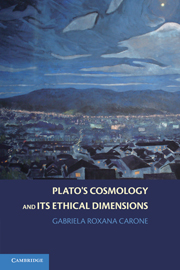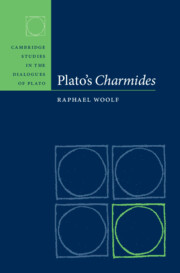Plato's Cosmology and its Ethical Dimensions
Although a great deal has been written on Plato's ethics, his cosmology has not received so much attention in recent times and its importance for his ethical thought has remained underexplored. By offering accounts of Timaeus, Philebus, Politicus and Laws X, the book reveals a strongly symbiotic relation between the cosmic and human sphere. It is argued that in his late period Plato presents a picture of an organic universe, endowed with structure and intrinsic value, which both urges our respect and calls for our responsible intervention. Humans are thus seen as citizens of a university that can provide a context for their flourishing even in the absence of good political institutions. The book sheds light on many intricate metaphysical issues in late Plato and brings out the close connections between his cosmology and the development of his ethics.
- Treats Plato's late cosmology in a comprehensive manner
- Discusses in detail the virtually unexplored relation between Plato's late cosmology and his ethics
- Provides a new basis for understanding Plato's late ethics and politics
Reviews & endorsements
Review of the hardback: 'It is a significant contribution indeed to Plato scholarship - both daring and original. It is sure to be seen as an important work and to be much discussed.' C. D. C. Reeve, University of North Carolina, Chapel Hill
Review of the hardback: 'Carone offers an intriguing and insightful study of the relation between cosmology and ethics in four of Plato's late dialogues …' The Journal of Value Inquiry
Product details
January 2006Hardback
9780521845601
334 pages
229 × 152 × 19 mm
0.62kg
Available
Table of Contents
- 1. Introduction
- 2. Demiurgy in the Timaeus
- 3. Cosmic God and human reason in the Timaeus
- 4. Creating mixtures in the Philebus
- 5. Cosmos and human happiness in Philebus
- 6. Reversing the myth of the Politicus
- 7. Cosmic and human drama in the Politicus
- 8. Good and evil in Laws X
- 9. Conclusion.





